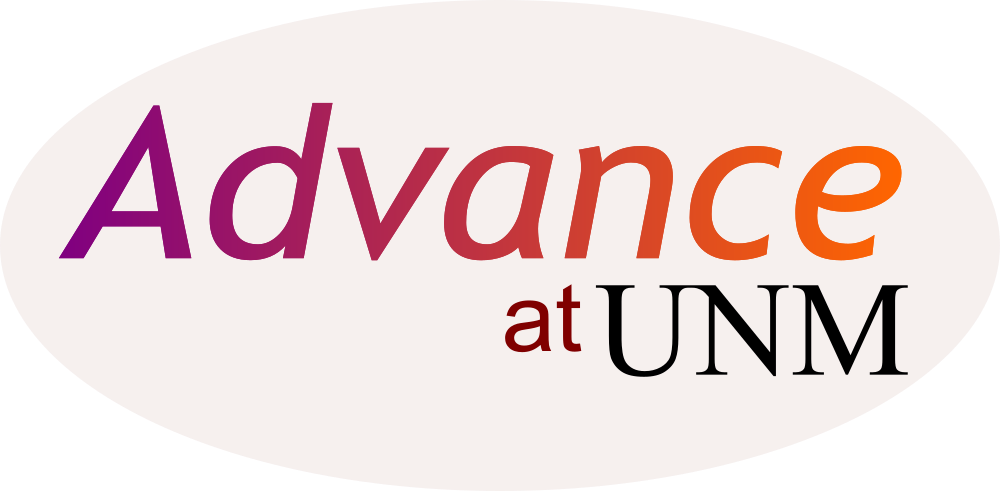UNM faculty and staff learn about working with program officers
Faculty members learned about how best to work with their program officers on Oct. 19th at Advance’s workshop entitled “Your Program Officer as a Guide.”
Professors from across the university served as panelists, including Jane Lehr of the Electrical and Computer Engineering Department. Lehr was previously employed at Sandia National Laboratories and the Air Force Research Laboratory.
Other panelists included:
— Interim Director of CASAA Scott Tonnigan, who has had 30 years of continuous NIH funding for his research.
— Tom Turner of the Biology Department, who is an associate dean of research in the School of Arts and Science who recently finished an appointment as a program officer at the NSF.
— Daniel Feezell, who is an associate professor in the Department of Electrical and Computer Engineering. Feezell is involved with the Center for High Technology Materials (CHTM), and is funded by NSF, DOE, DOD, DARPA, DITRA National Labs and other private industries.
Project officers have three main functions that are important for potential applicants to keep in mind when attempting to foster a relationship with their program officer, specifically in the realm of the NIH, according to Tonnigan.
“One [of these roles] is to bounce of initial ideas to see if a particular institute … is interested in that idea … and one of the biggest challenges as an applicant will be to identify the appropriate institute for your idea,” he said.
To find the appropriate place for your submission, get in touch with a program officer, Tonnigan said.
“Another role is in the review process … they can give you feedback once you have received your summary statements …The third is monitoring the progress of your award on a yearly basis,” he said.

Tonnigan also pointed out that having a good relationship with your program officer is beneficial because they can search for other opportunities for you outside of your award given to you by the institution.
Panelists also discussed the importance of white papers.
“I always recommend starting with a white paper, and in fact, I spend more time on a white paper than I do on the proposal … because that’s what gets their attention, that is what generates excitement,” Lehr said.
Additionally, the relevance of white papers across different institutions was discussed. Tonnigan stressed that audience members should “formalize your ideas in advance,” because not all officers are the same.
Feezell also suggested avoiding unsolicited responses to feedback to your submitted proposal, as rebuttals will not help your relationship with a program officer.
Another method of making initial contact with your program manager, aside from the white paper, according to Feezell, would be to, “try to volunteer as a reviewer … be a reviewer, go sit on a panel, and you will meet the program officer. Review for the program you want to submit to.”
Questions posed by the audience included asking the panelists if program officers take offense when someone turns down an invitation to be on a panel because of scheduling conflicts. In response to this, Lehr said to tell them about the conflict, but then say, “If there is anything I can do remotely, please ask me first.” She said telling the program officer this sends the message of still being interested.
Another question from the audience was how to appear more interested in the programs for different agencies.
“You can directly contact a program officer for the program that you are interested in and say that you would love to do some reviewing,” Turner said.
Feezell also agreed with Turner’s point, but added that attending a workshop put on by the program officer allows you to interact with the program officer of someone’s desired program.
